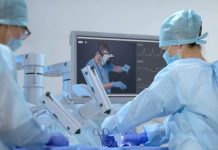
Nokia and Nordic Semiconductor have announced a new approach to licensing the use of cellular IoT Standard Essential Patents. Companies purchasing IoT hardware from Nordic will now be given the opportunity to acquire licenses to Nokia’s industry leading portfolio of cellular patents.
This new agreement, which is the first of its kind, will simplify and speed up the Standard Essential Patent (SEP) licensing process and provide greater transparency and predictability to companies delivering IoT products and services. Licenses will be available at the end device level and companies will continue to have the option to license direct with Nokia.

Nokia has defined, and contributed to open standards, many of the fundamental inventions used in virtually all cellular devices and LTE-M and NB-IoT technologies. In practice, this means any device that is connected to any cellular network automatically uses Nokia’s intellectual property.
Kjetil Holstad, EVP Product Management at Nordic Semiconductor said: “Nordic Semiconductor is all about making IoT easy for its customers. Through this collaboration with Nokia, we have now added transparency and predictability early in the design process, giving the increased clarity and certainty Nordic cellular IoT customers have been seeking over the past three to four years.”
Jenni Lukander, President of Nokia Technologies, said: “Nokia has a history of working closely with industry to find effective licensing solutions and this innovative new approach is another example. It’s a win-win for Nordic’s customers and Nokia, simplifying the SEP licensing process in the IoT space and making it easier for licensing agreements to be concluded amicably and efficiently. The move will support the future growth of cellular IoT and ensure that consumers benefit from an even greater range of connected products and services.”
Geir Langeland, EVP Sales at Nordic Semiconductor added: “This is our first step in making the licensing of cellular IoT technology more predictable and transparent. If there are ways to make the process even simpler in the future, we will pursue them.”









